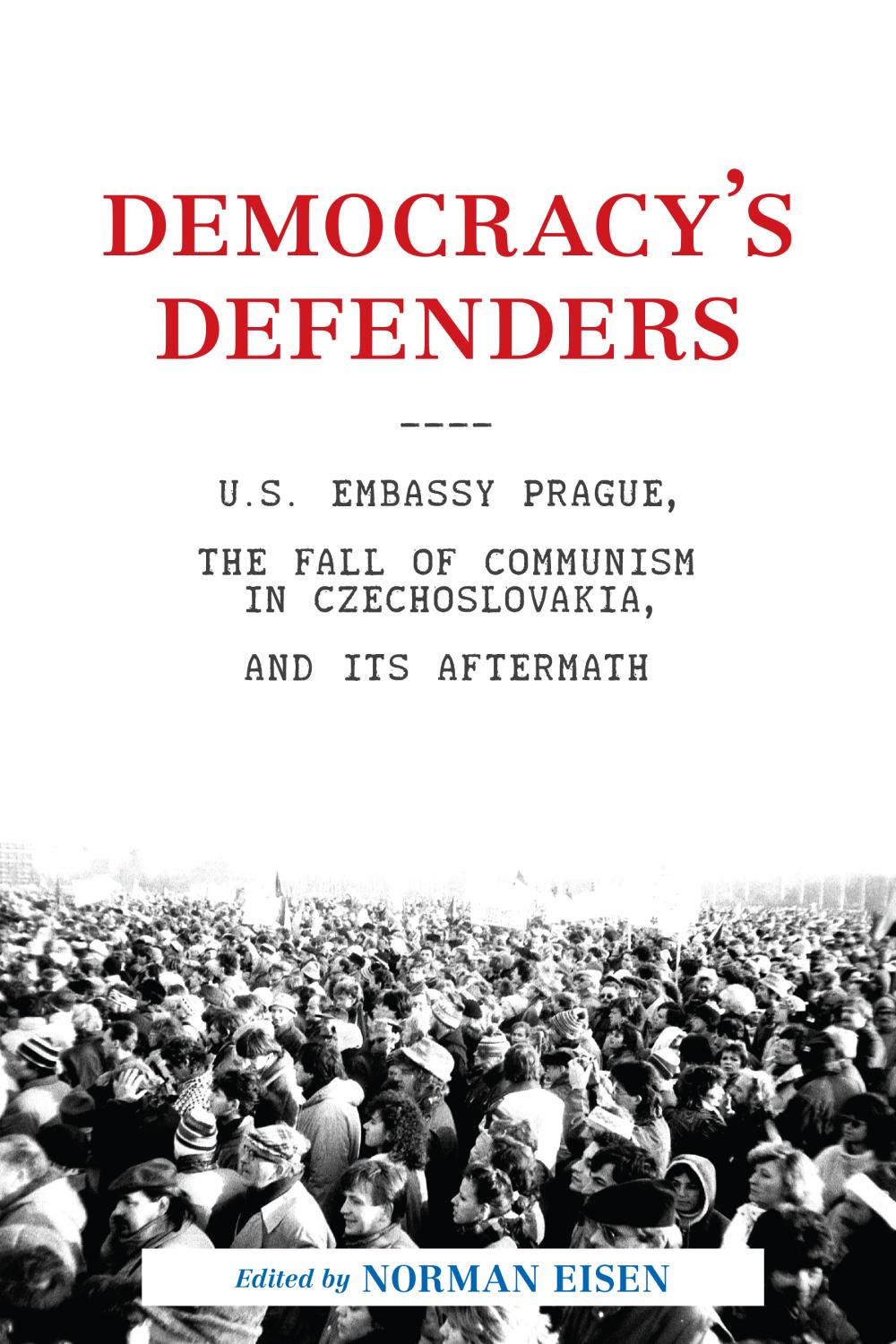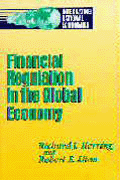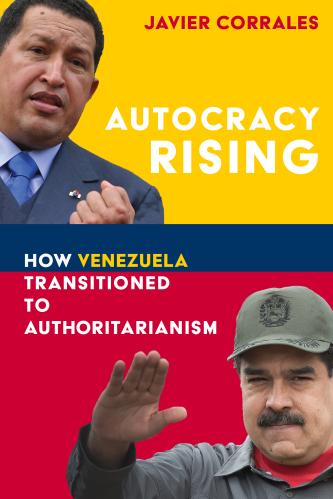


Book
Order your copy of Democracy’s Defenders here and help support your local bookstore.
A behind-the-scenes look at how the United States aided the Velvet Revolution
Democracy’s Defenders offers a behind-the-scenes account of the little-known role played by the U.S. embassy in Prague in the collapse of communism in what was then Czechoslovakia. Featuring fifty-two newly declassified diplomatic cables, the book shows how the staff of the embassy led by U.S. Ambassador Shirley Temple Black worked with dissident groups and negotiated with the communist government during a key period of the Velvet Revolution that freed Czechoslovakia from Soviet rule.
In the vivid reporting of these cables, Black and other members of the U.S. diplomatic corps in Prague describe student demonstrations and their meetings with anti-government activists. The embassy also worked to forestall a violent crackdown by the communist regime during its final months in power.
Edited by Norman L. Eisen, who served as U.S. Ambassador to the Czech Republic from 2011 to 2014, Democracy’s Defenders contributes fresh evidence to the literature on U.S. diplomatic history, the cold war era, and American promotion of democracy overseas. In an introductory essay, Eisen places the diplomatic cables in context and analyzes their main themes. In an afterword, Eisen, Czech historian Dr. Mikuláš Pešta, and Brookings researcher Kelsey Landau explain how the seeds of democracy that the United States helped plant have grown in the decades since the Velvet Revolution. The authors trace a line from U.S. efforts to promote democracy and economic liberalization after the Velvet Revolution to the contemporary situations of what are now the separate nations of the Czech Republic and Slovakia.
Related Books

A. Doak Barnett
December 1, 1977

Richard Herring, Robert E. Litan
December 1, 1994

Javier Corrales
February 15, 2023
“In Democracy’s Defenders, Ambassador Eisen has brought to public light an important story of how America’s diplomats played a critical role in ending Communism in the former Czechoslovakia and how those efforts gave great momentum to the rise of a democratic Central and Eastern Europe. Vital reading at a time when democracy is being threatened in Central Europe and when the traditional role of America in the world is being challenged here at home.”
—Denis McDonough, former White House chief of staff and principal deputy national security adviser
“Engaging and illuminating, Democracy’s Defenders offers striking new insights into how American diplomats played a quiet but facilitating and supportive role in helping to midwife the rebirth of democracy in Czechoslovakia thirty years ago. Ambassador Eisen has assembled a remarkable historical record of how to do democracy promotion the right way. A must-read for students of the Cold War, those interested in the future of European democracy, and practitioners committed to renewing American diplomatic engagement to advance human rights and democracy around the world.”
—Michael McFaul, former U.S. ambassador to Russia; Ken Olivier and Angela Nomellini Professor of International Studies, Stanford University
“The sudden collapse of Communist regimes throughout Central and Eastern Europe unleashed popular uprisings and liberal leaders. Thirty years later, this remarkable collection of U.S. State Department cables, organized by Ambassador Norman Eisen and his co-contributors, highlights the role played by U.S. diplomats at a crucial time in the Velvet Revolution. When considering the lessons of 1989, it is worthwhile to remember the role played over decades by U.S. diplomats in helping Europeans realize the dream of free and just societies.”
—Strobe Talbott, former deputy secretary of state; distinguished fellow in residence, Brookings Institution
“This fascinating collection of documents reveals American foreign policymaking at its most effective and compelling. What stands out is not only the professionalism of American diplomats but also their passionate devotion to liberal democratic ideals. This is a success story, much needed at a time when many have forgotten what that looks like.”
—Robert Kagan, Stephen and Barbara Friedman Senior Fellow, The Brookings Institution; author of The Jungle Grows Back: America and Our Imperiled World
“Democracy’s Defenders is fascinating and instructive. It offers essential lessons about not only the past but the present and future of American foreign policy. They include how to promote human rights in authoritarian regimes and how to support new democracies.”
—Joseph Lieberman, former United States Senator
“Democracy’s Defenders is a welcome and valuable addition to our everexpanding volume of knowledge of the role of American diplomacy behind the Iron Curtain and particularly in Czechoslovakia at the end of the Cold War and in the first stages of the country’s transition to democracy. The newly available cables establish a number of interesting new connections and fill in a number of gaps. The meticulous work of the editors and their insights make this a book worth reading by every serious student of recent Czech-American history.”
—Michael Žantovský, former Czech ambassador to the United States; author of Havel: A Life
“These cables bring to life the heady, bewildering, and sometimes frustrating days of summer and fall 1989, as depicted by the U.S. embassy staff who dealt with the Communist regime in Prague and the growing dissident movement that would topple it. Norman Eisen and his researchers have done a fine job in selecting and editing these important diplomatic records and framing them in the context of the Cold War and its aftermath. As an eyewitness to these events myself, I commend the clarity of the reporting and the analytical framework with which these able, patriotic, and highly professional men and women served their country—and the wider cause of freedom in Czechoslovakia.”
—Edward Lucas, senior vice president, Center for European Policy Analysis; author of The New Cold War: Putin’s Russia and the Threat to the West
“In Democracy’s Defenders, history comes alive through the vivid, lived experience of U.S. diplomats who were both helping to shape and respond to transformative events. At a time when authoritarianism has reemerged, this book offers powerful and timely lessons about how and why we should learn from a democratic triumph that was not at all inevitable.”
—Ben Rhodes, former deputy national security adviser; author of The World as It Is: A Memoir of the Obama White House
Author
Edited by
Norman L. Eisen (editor and contributor) is a senior fellow at the Brookings Institution. He served as U.S. Ambassador to the Czech Republic from 2011 to 2014, and as White House “ethics czar” from 2009 to 2011. He is the author of The Last Palace: Europe’s Turbulent Century in Five Lives and One Legendary House (Crown 2018).